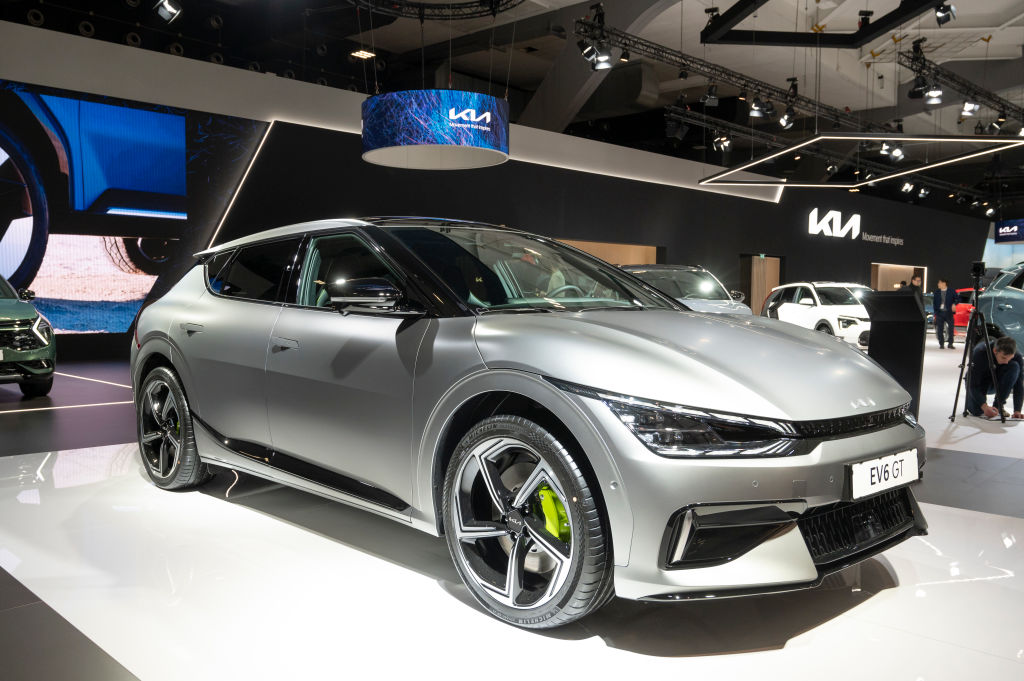A couple drove across the country in an electric vehicle and have now spoken about the challenges that they faced when on the road, in an EV, in the freezing cold.
On Tuesday, Axios published an article by reporter Joann Muller, describing the experience that she and her husband had as they drove their Kia EV6 1,500 miles from Michigan to Florida.
While Muller says that the trip overall was “leisurely,” she has also pointed out that there were several drawbacks to taking a long road trip in an EV, especially in the freezing cold.
First, there was the fact that the cold weather caused the battery to drain faster, which meant that the couple had to stop 12 different times to charge the car. “We stopped 12 times to recharge over the 1,500-mile journey. Charging times varied between 20 minutes and 55 minutes, depending on the state of the car’s battery and the speed of the chargers we used,” Muller said.
That means that they spent anywhere between four to eleven hours charging their car. That is an insane amount of time to add on to an already long road trip.
Then there was the fact that when the husband started the trip in Detroit, where the temperature was in the low 30s, he was worried about the extra strain that the cold weather would put on the battery.
His solution, therefore, was to forgo the use of the cabin heat during the drive. “I used only the heated steering wheel and heated seats while driving — no cabin heat,” he said.
Think about that for a moment, in the freezing cold temperatures in the middle of winter, the man was forced to forgo the use of his car’s heating system in order to ensure that the car did not stall. Granted he did use the heated steering wheel and the heated seats, but the fact that he did not heat the cabin means that the trip had to be less than pleasant given the weather.
Also, the couple had severe “range anxiety” during the trip, meaning that they were constantly thinking about how far the car could go and where they could stop to recharge. According to Muller, this thought obsessed them during the drive: “We were constantly thinking about where to charge next. It occupied our minds more than where to eat or spend the night.”
This meant that they could not really enjoy the drive, as they were constantly thinking about making sure that the car was charged. This has never been a problem with gas cars. You can always be certain that every town along the road will have someplace to stop and refuel, thereby making sure that you are not stranded.
Finally, they answer the question of whether or not America is ready for the use of electric cars to make long trips. Her answer: “Not quite, but we’re making progress.”
Their solution to the problem is that you have to do a massive amount of planning ahead in order to ensure that you do not get stranded. This does not sound like a fun road trip at all.
Despite her claims that the trip was “doable” and “leisurely,” it does not sound like a pleasant trip in the slightest. It seems riddled with anxiety about where to stop and charge and how long the car can last.
We are told by our government and by climate activists that EVs are the way of the future and that they are necessary to stem the threat posed by climate change.
But the thing that they may not have considered is whether these cars are efficient and reliable. We have seen time and time again that they are not as efficient as gas-power cars, especially in the cold.
In addition, there is the fact that these cars are super expensive, sometimes costing over $100,000. That does not even take into account the maintenance costs that go along with it.
In sum, EVs may be the way of the future, but this trip and countless other examples have shown that they have a long way to go before they can be considered a real, viable alternative to gas cars.
This article appeared originally on The Western Journal.

























 Continue with Google
Continue with Google